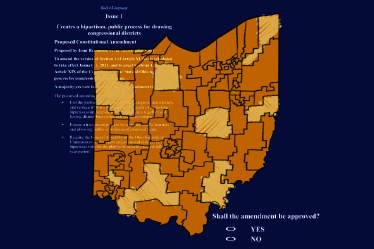By simply passing Ishmael Beah on the street or having a casual encounter with him, one would never guess the story this man possesses. Once a child soldier, Ishmael Beah has lived much beyond his years.
First-year students were asked to read his memoir, “A Long Way Gone,” this summer for part of their FYS classes. On Thursday, Sept. 18 Beah appeared before a large crowd of Wooster students and community members to speak of his experience as a child soldier in the civil war of Sierra Leone beginning at the age of 12. He discussed the rehabilitation he underwent and how he came to write this book.
Beah has not always been willing to share his story. During high school and most of the time he spent at Oberlin College, Beah kept his past hidden from those around him. It was not until taking a creative writing class in college that he began to try to write his story down, removing his name at first to keep his identity hidden. Beah graduated with the first draft of this memoir in hand.
Beah spoke of how complex writing this book was for him. He explained how he had to relive the times in his life that he had tried for years to repress.
He was submerged once again in the darkness that had once taken over his childhood, and admitted that the writing process was not a happy time for him. However, he felt it was necessary to revisit each piece of his experience in order to convey specific emotions and events that stand out in his memory.
His book is full of references to the physical landscape that surrounded him and Beah made note of this fact in his speech, saying that the nature of the landscape literally changed as the violence was waged upon it.
Beah noticed, in his reliving of the horror, that the birds actually ceased singing. Their song that was so present in his boyhood memory totally disappeared once the war was underway.
It was with these seemingly minor details, that Beah suggested that violence is more than just this romantic idea we see played out in films. It affects people, communities and countries.
The very culture of his home changed, Beah explained. There was a breakdown of hierarchy; for example, elders that were greatly respected before the war were negated during the conflict. Children could no longer be seen as innocent. War had transformed them into suspicious and dangerous beings.
Beah’s greatest hope is that his memoir will do more than tell a story of another war, but will instead bring context to this conflict that is a reality for so many living the violence every day.
A large part of the forum was a question-and-answer session with the author. Microphones were placed in the middle aisles and Beah encouraged the audience to ask whatever they desired.
One such question was asked in regard to a passage in the book, where Beah references a fable that he learned as a boy. A monkey runs up to you in a forest, Beah recapped for the audience, “You raise your gun, and the monkey says if you shoot me your mother will die, if you don’t I will shoot your father.” Beah answered that he would shoot the monkey so no one would ever have to go through the ordeal again.
So the question was asked: Did Beah believe that all violence was wrong or that sometimes the end justified the means? Beah simply stepped back and said, “You missed the point of the story. The point of the story is as soon as you raise that gun, someone will feel the consequence of that violence.”

